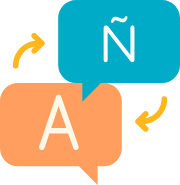Result for Language access
Access to Indigenous languages Changes in demographics in the last few years have shown an increasing number of Indigenous peoples of Latin America arriving at the border and asking for asylum. Although Census data shows increases as well, there are big levels of underreporting due to many factors including the way […]
The Federal Interagency Working Group on Limited English Proficiency offers guidance on what constitutes vital documents: “A document will be considered vital if it contains information that is critical for accessing the agency’s program or activities, or is required by law.” These include, but are not limited to: Complaint, consent, release […]
Individuals who are limited English proficient (LEP) are those for whom English is not their primary language and they have a limited ability to read, write, speak, or understand English. Immigrants to the United States come from many language backgrounds and while some speak English very well, approximately half of the […]
Trainings, glossaries, and curricula Continuous education is necessary for Language Access since language evolves with new words, phrases. Glossaries There are many unique terms for language access that are necessary for everyone (victims and advocates) need to know. Here are some resources on terminology. We encourage you to develop your own […]
Sample LEP plans It is helpful to review language access plans from other organizations. Here are two different examples of language access plans that may be helpful as you work towards meaningful language access. Model protocol on services for limited English proficient immigrant and refugee victims of domestic violence, by the […]
Promising practices There are many promising practices throughout this website, however, we would like to highlight the following promising practices: The use of glossaries to have consistent usage of words spoken in your community Ongoing Language Access trainings for all staff Periodically reviewing the codes of ethics and guidelines for interpretation practices. Helpful […]
Resources This section provides the following of resources: Data about why language access is important and the population with LEP in the US, and the federal laws that mandate language access (and the guidance on how to do so). This information can be especially helpful for systems advocacy. Sample plans and […]
Tool: Increasing language access in the courts The increasing language access in the courts tool: Examines advocates’ observations about the court experiences of survivors with limited English proficiency Offers guidance and resources to build systems change efforts for language accessibility In 2013, we conducted a nationwide assessment of court-based language accessibility […]
Systems change Systems change is a process that involves responding to an instance of lack of language access (for example) and builds on that one experience to create significant change in a system or service. The following steps were outlined through an interview with Enlace Comunitario, a social justice organization led by Latina women […]









